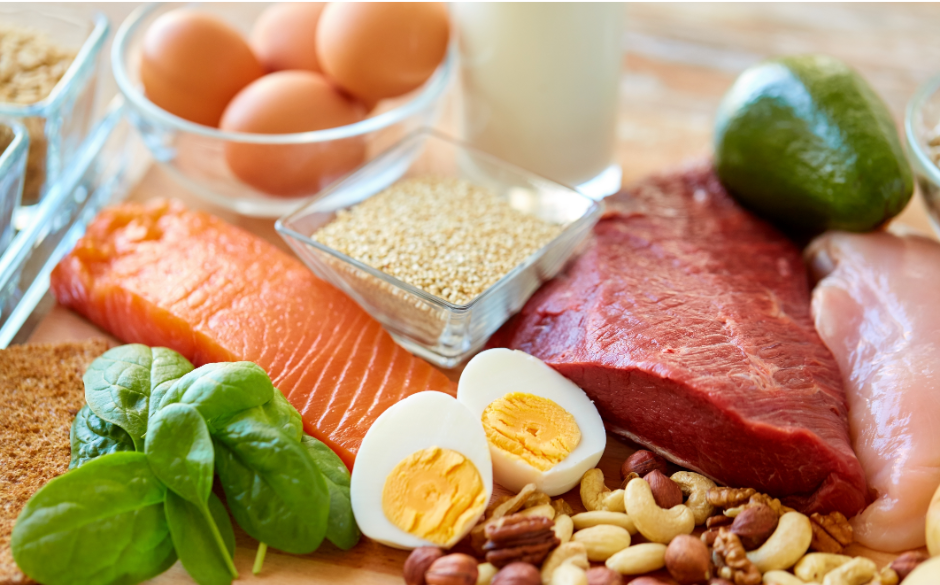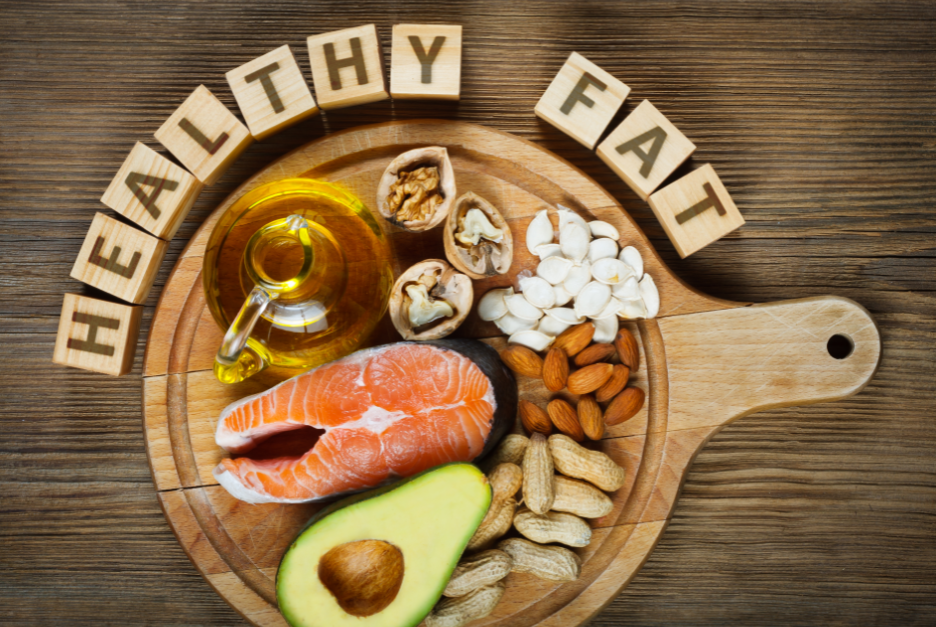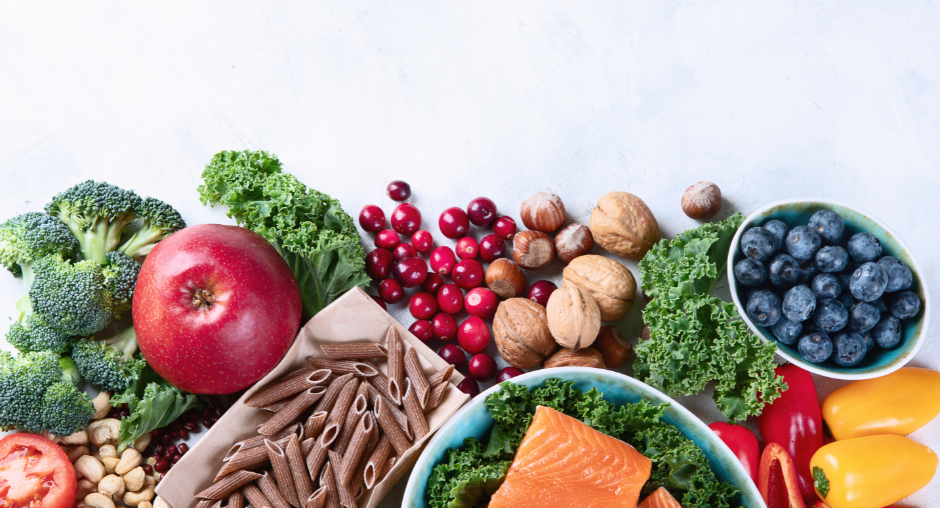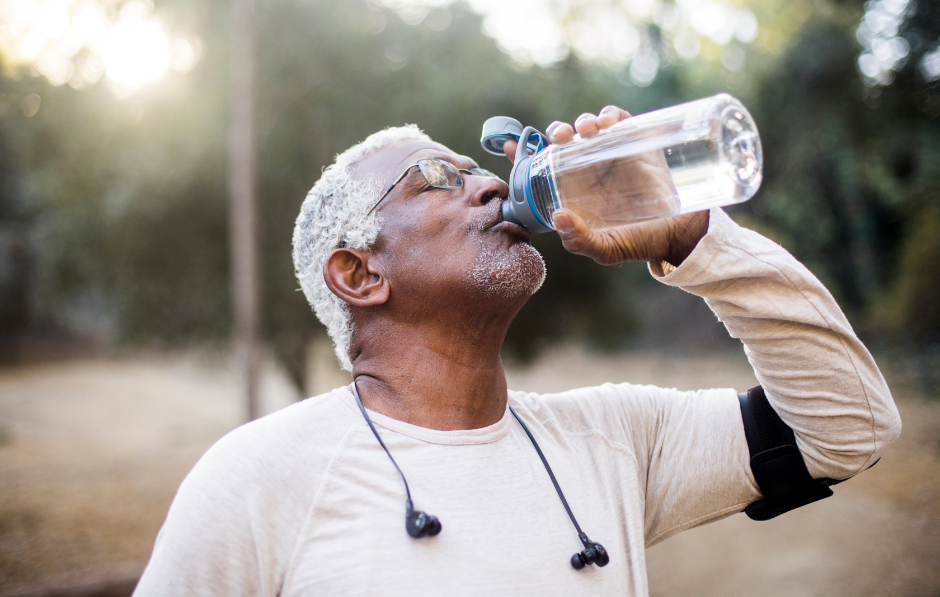My body, much like yours, relies on certain nutrients to thrive. It’s essential to understand what these nutrients do and why they’re a non-negotiable part of maintaining health. In this article, I cover the top five nutrients that I make sure to include in my diet, and you should consider too.
These nutrients are the workhorses of bodily functions. They help repair tissues, support our immune system, convert food into energy, and perform a host of other critical tasks. As we grow and age, our bodies’ nutritional needs shift, making it imperative to tailor our intake accordingly.
Unfortunately, there are numerous myths surrounding dietary needs. For example, some might think fats should be avoided at all costs and too much protein is bad for you. Spoiler alert: these are misconceptions. In this article, I debunk these myths and set the record straight on what our bodies genuinely need to function optimally.

The Power of Protein: Fueling Your Muscles and More
Protein is often at the center of conversations about health and fitness, and rightfully so. It is the workhorse of your cells, playing a crucial role in building and repairing tissues, including muscles, which are vital for both daily function and athletic performance.
What exactly are amino acids, though? These are the building blocks of protein, and there are twenty different types that your body needs. Of those, nine are considered ‘essential’ because your body can’t make them on its own; you need to get them through your diet. A ‘complete protein’ is a food source that contains all nine of these essential amino acids in sufficient amounts.
If you’re wondering what counts as a high-quality protein, animal products like meat, dairy, and eggs often fit the bill. However, plant-based diets can also provide all your protein needs. Quinoa, buckwheat, soy, and combining beans with rice are examples of plant-based combinations that provide complete proteins.
The recommended daily intake of protein is 0.8 to 1.2 grams per pound of bodyweight and even more in older people. Multiple studies suggest that the more protein we consume, in general, the better. Beyond it’s role in building muscle, protein has beneficial effects on our metabolism. Eating protein also helps us feel satiated, inhibiting hormone ghrelin, so we eat fewer calories overall. Don’t ignore protein it’s the one macronutrient that is absolutely essential to our goals. There’s no minimum requirement for carbohydrates or fats (in practical terms), but if you shortchange protein, you will most certainly pay a price, particularly as you age.

Harnessing the Benefits of Healthy Fats
When I say fats, you might envision greasy foods and the notorious villains of a healthy diet. But let me clear the air: not all fats are created equally. Your body needs certain fats to thrive. They’re a major source of energy, help you absorb vitamins like A, D, E, and K, and are essential for brain health and cell function.
Let’s start with the good guys. Unsaturated fats are the ones you want on your team. They come in two types: monounsaturated and polyunsaturated fats, including omega-3 and omega-6 fatty acids. These fats support heart health, help reduce bad cholesterol levels, and can be found in foods like avocados, nuts, and fish.
Now, saturated fats. They’re not the enemy if consumed in moderation. Mostly found in animal products, they were once considered the main cause of heart-related issues, but recent research suggests a balanced intake won’t harm – and might even benefit – your health.
Steer clear of trans fats, though. They’re the true bad guys, often lurking in processed foods, contributing to heart disease, and raising bad cholesterol. So, read those labels closely!
So how can you include healthy fats in your diet without overdoing it? Start by incorporating fish like salmon or mackerel into your meals twice a week. Cook with olive oil instead of butter. Snack on a handful of almonds or walnuts. And when it comes to dairy or meat, choose the leaner options.
It’s all about balance. Your body needs fat to absorb nutrients, but the quality and quantity matter. Stick to the recommended guidelines, and you’ll harness the power of fats effectively.
We’ve discussed healthy fats, but vitamins and minerals are next in line for ensuring your body functions like a well-oiled machine. Move beyond the fats and let’s zoom in on these micronutrients.

Achieving Optimal Health with Vitamins and Minerals
Vitamins and minerals are essential components in my diet that work silently behind the scenes. Like a well-conducted orchestra, they ensure my body functions at its best. Each vitamin and mineral plays a specific role, from supporting immune function to enhancing bone strength.
Deficiencies can creep in subtly, and they can have significant consequences. For instance, low levels of vitamin D might affect my bone health, and not enough vitamin B12 could lead to fatigue and cognitive issues. I need a range of vitamins and minerals to maintain my health, and understanding their benefits helps me make informed dietary choices.
To tackle these deficiencies, I focus on a diet rich in fruits, vegetables, whole grains, and lean proteins, which provides a vast array of these nutrients. I’m aware that while supplements can help, they’re not a substitute for a diverse, healthy diet. I pay attention to my body and, when needed, I consult a healthcare provider for advice on whether I require supplements.
An often-overlooked component is hydration, which segues naturally to the next essential nutrient: water. Ensuring I get enough vitamins and minerals is one part of the puzzle; staying well-hydrated is another vital piece that facilitates the optimal function of these nutrients within my system.
Staying Hydrated with Water: The Nutrient of Life
Water isn’t just a luxury; it’s a critical nutrient that your body relies on to maintain health and homeostasis. It’s involved in almost every bodily function, from regulating your temperature to flushing out waste products.
Ignoring your hydration can lead to diminished physical performance, reduced cognitive abilities, and even adverse health outcomes. That’s why keeping an eye on your water intake is SO important.
Current guidelines suggest that men should aim for about 3.7 liters of water per day, while women should target about 2.7 liters. But remember, your individual needs can vary based on factors like activity levels, climate, and overall health.
Beyond the numbers, pay attention to your body’s signals. Feeling thirsty? That’s your body telling you it’s time to drink up. And no, you don’t always need to reach for plain water. Other beverages and high-water-content foods count too.
Perhaps surprisingly, hydration can also benefit your skin. While proper water intake alone won’t erase wrinkles, it does help your skin do its job better, keeping it resilient and ready to protect your body from the environment.
Take my advice: don’t overlook the power of water. Make hydration a HABIT, not an afterthought. Your body – and your health – will thank you for it.